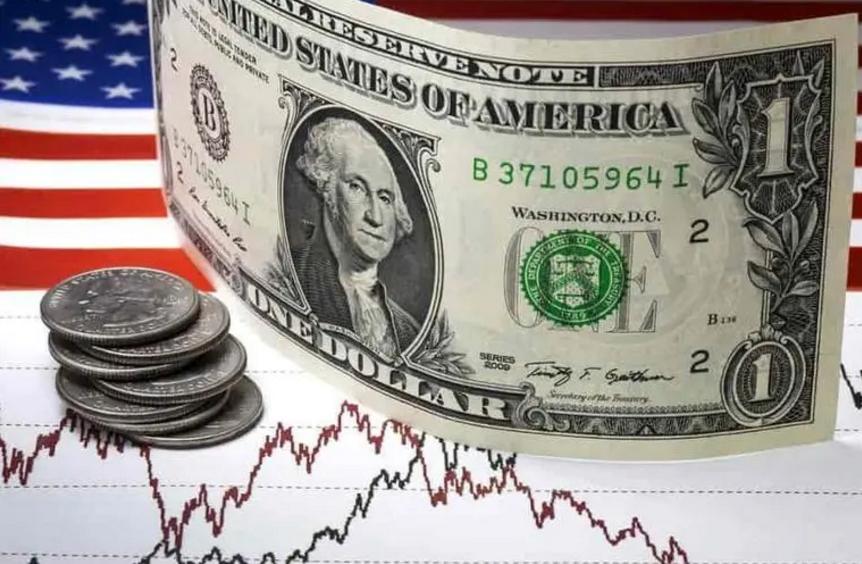 如果其他国家将美元作为其官方货币,将对美国经济有何影响?
如果其他国家将美元作为其官方货币,将对美国经济有何影响?
How does it affect the U.S. economy if other countries use the U.S. dollar as their official currency?
译文简介
如果其他国家使用美元作为其官方货币或在其外汇储备中持有大量美元,这对美国经济来说既有好处也有挑战。
正文翻译

If other countries use the U.S. dollar as their official currency or hold significant amounts of U.S. dollars in their foreign exchange reserves, it can have both benefits and challenges for the U.S. economy.
如果其他国家使用美元作为其官方货币或在其外汇储备中持有大量美元,这对美国经济来说既有好处也有挑战。
Benefits:
Global Demand for U.S. Dollars:
The widespread use of the U.S. dollar can create a global demand for U.S. currency.
This can increase the liquidity and stability of the U.S. dollar, making it a trusted medium of exchange for international trade and financial transactions.
The U.S. dollar''''s status as a global reserve currency can enhance its value and facilitate global economic interactions.
好处:
全球对美元的需求:
美元的广泛使用可以创造全球对美国货币的需求。
这可以增加美元的流动性和稳定性,使其成为国际贸易和金融交易中值得信赖的交换媒介。
美元作为全球储备货币的地位既可以提高其自身价值又能促进全球经济互动。
原创翻译:龙腾网 http://www.ltaaa.cn 转载请注明出处
Global Demand for U.S. Dollars:
The widespread use of the U.S. dollar can create a global demand for U.S. currency.
This can increase the liquidity and stability of the U.S. dollar, making it a trusted medium of exchange for international trade and financial transactions.
The U.S. dollar''''s status as a global reserve currency can enhance its value and facilitate global economic interactions.
好处:
全球对美元的需求:
美元的广泛使用可以创造全球对美国货币的需求。
这可以增加美元的流动性和稳定性,使其成为国际贸易和金融交易中值得信赖的交换媒介。
美元作为全球储备货币的地位既可以提高其自身价值又能促进全球经济互动。
原创翻译:龙腾网 http://www.ltaaa.cn 转载请注明出处
Lower Borrowing Costs:
The U.S. dollar''''s role as a global currency can lead to lower borrowing costs for the U.S. government and U.S.-based businesses.
It can attract foreign investors who purchase U.S. government bonds and invest in U.S. assets, helping to fund government spending and support economic growth.
降低借贷成本:
美元作为全球货币的作用可以使美国政府和美国企业的借贷成本降低。
它可以吸引购买美国政府债券和投资美国资产的外国投资者,为政府开支和美国经济增长提供支持。
The U.S. dollar''''s role as a global currency can lead to lower borrowing costs for the U.S. government and U.S.-based businesses.
It can attract foreign investors who purchase U.S. government bonds and invest in U.S. assets, helping to fund government spending and support economic growth.
降低借贷成本:
美元作为全球货币的作用可以使美国政府和美国企业的借贷成本降低。
它可以吸引购买美国政府债券和投资美国资产的外国投资者,为政府开支和美国经济增长提供支持。
Trade Advantages:
International trade settlements in U.S. dollars can simplify transactions and reduce exchange rate risks for businesses in the United States.
It can also facilitate price transparency and comparability across countries, making it easier to conduct cross-border commerce.
贸易优势:
国际贸易以美元结算可以简化交易,减少美国企业的汇率风险。
它还可以提高各国的价格透明度和可比性,使其更容易进行跨境贸易。
International trade settlements in U.S. dollars can simplify transactions and reduce exchange rate risks for businesses in the United States.
It can also facilitate price transparency and comparability across countries, making it easier to conduct cross-border commerce.
贸易优势:
国际贸易以美元结算可以简化交易,减少美国企业的汇率风险。
它还可以提高各国的价格透明度和可比性,使其更容易进行跨境贸易。
Challenges:
Exchange Rate Volatility:
The global use of the U.S. dollar can make it susceptible to fluctuations in the foreign exchange market. Currency movements can impact the competitiveness of U.S. exports and the cost of imports.
Exchange rate volatility can also affect U.S. businesses and investors engaged in international trade and investments.
挑战:
汇率波动:
美元在全球范围内的使用会使其更容易受到外汇市场波动的影响。货币波动会影响美国出口竞争力和进口的成本。
汇率波动也会影响从事国际贸易和投资的美国企业和投资者。
Exchange Rate Volatility:
The global use of the U.S. dollar can make it susceptible to fluctuations in the foreign exchange market. Currency movements can impact the competitiveness of U.S. exports and the cost of imports.
Exchange rate volatility can also affect U.S. businesses and investors engaged in international trade and investments.
挑战:
汇率波动:
美元在全球范围内的使用会使其更容易受到外汇市场波动的影响。货币波动会影响美国出口竞争力和进口的成本。
汇率波动也会影响从事国际贸易和投资的美国企业和投资者。
Economic Imbalances:
The U.S. dollar''''s status as a global reserve currency can contribute to trade imbalances.
It can create a situation where the United States runs persistent trade deficits as other countries accumulate U.S. dollars.
This can have implications for domestic industries, employment, and the overall balance of payments.
经济失衡:
美元作为全球储备货币的地位会导致贸易不平衡。
它可以造成一种情况,即当其他国家囤积美元时,美国会出现持续的贸易赤字。
这可能会对国内产业、就业和整个国际收支产生影响。
The U.S. dollar''''s status as a global reserve currency can contribute to trade imbalances.
It can create a situation where the United States runs persistent trade deficits as other countries accumulate U.S. dollars.
This can have implications for domestic industries, employment, and the overall balance of payments.
经济失衡:
美元作为全球储备货币的地位会导致贸易不平衡。
它可以造成一种情况,即当其他国家囤积美元时,美国会出现持续的贸易赤字。
这可能会对国内产业、就业和整个国际收支产生影响。
Financial System Vulnerabilities:
The dependence on the U.S. dollar for global financial transactions can create interconnections and vulnerabilities in the global financial system.
Developments in the U.S. economy, such as changes in monetary policy or financial regulations, can have ripple effects across countries that rely on the U.S. dollar.
金融系统的脆弱性:
全球金融交易对美元的依赖会使全球金融体系具有相互联系性和脆弱性。
美国经济的发展,如货币政策或金融法规的变化,会对依赖美元的国家产生连锁反应。
The dependence on the U.S. dollar for global financial transactions can create interconnections and vulnerabilities in the global financial system.
Developments in the U.S. economy, such as changes in monetary policy or financial regulations, can have ripple effects across countries that rely on the U.S. dollar.
金融系统的脆弱性:
全球金融交易对美元的依赖会使全球金融体系具有相互联系性和脆弱性。
美国经济的发展,如货币政策或金融法规的变化,会对依赖美元的国家产生连锁反应。
Policy Constraints:
The global role of the U.S. dollar can impose policy constraints on the United States.
Economic decisions, such as monetary policy adjustments, can have spillover effects on other countries due to their exposure to the U.S. dollar.
The United States may need to consider the impact of its policy actions on global economic stability.
It''''s important to note that the impact of the U.S. dollar''''s global role on the U.S. economy is influenced by various factors, including economic conditions, global financial trends, geopolitical dynamics, and monetary policy decisions. It is a complex and evolving relationship that requires ongoing analysis and consideration.
政策限制:
美元的全球地位会对美国造成政策限制。
经济决策,如货币政策的调整,可能会因为其他国家自身对美元的风险而产生溢出效应。
美国在施行政策时需要考虑其对全球经济稳定的影响。
值得注意的是,美元的全球角色对美国经济的影响受到各种因素的影响,包括经济状况、全球金融趋势、地缘政治动态和货币政策决定。这是一个复杂的和不断发展的关系。而这两者之间的关系值得我们持续的分析和考量。
The global role of the U.S. dollar can impose policy constraints on the United States.
Economic decisions, such as monetary policy adjustments, can have spillover effects on other countries due to their exposure to the U.S. dollar.
The United States may need to consider the impact of its policy actions on global economic stability.
It''''s important to note that the impact of the U.S. dollar''''s global role on the U.S. economy is influenced by various factors, including economic conditions, global financial trends, geopolitical dynamics, and monetary policy decisions. It is a complex and evolving relationship that requires ongoing analysis and consideration.
政策限制:
美元的全球地位会对美国造成政策限制。
经济决策,如货币政策的调整,可能会因为其他国家自身对美元的风险而产生溢出效应。
美国在施行政策时需要考虑其对全球经济稳定的影响。
值得注意的是,美元的全球角色对美国经济的影响受到各种因素的影响,包括经济状况、全球金融趋势、地缘政治动态和货币政策决定。这是一个复杂的和不断发展的关系。而这两者之间的关系值得我们持续的分析和考量。
评论翻译
很赞 ( 0 )
收藏
你分析的很全面